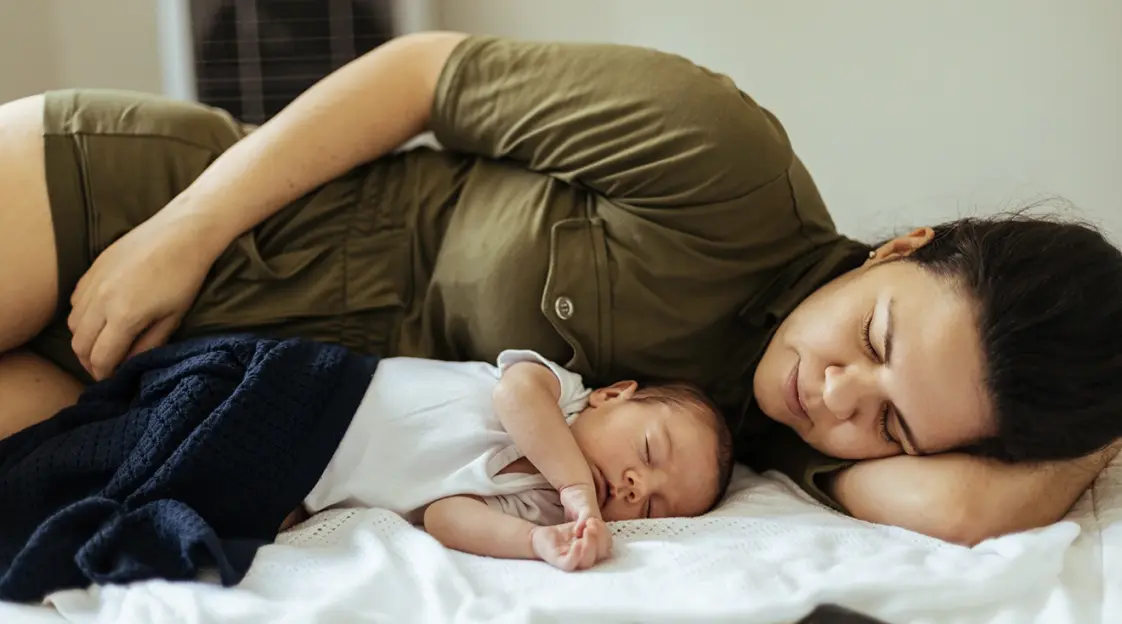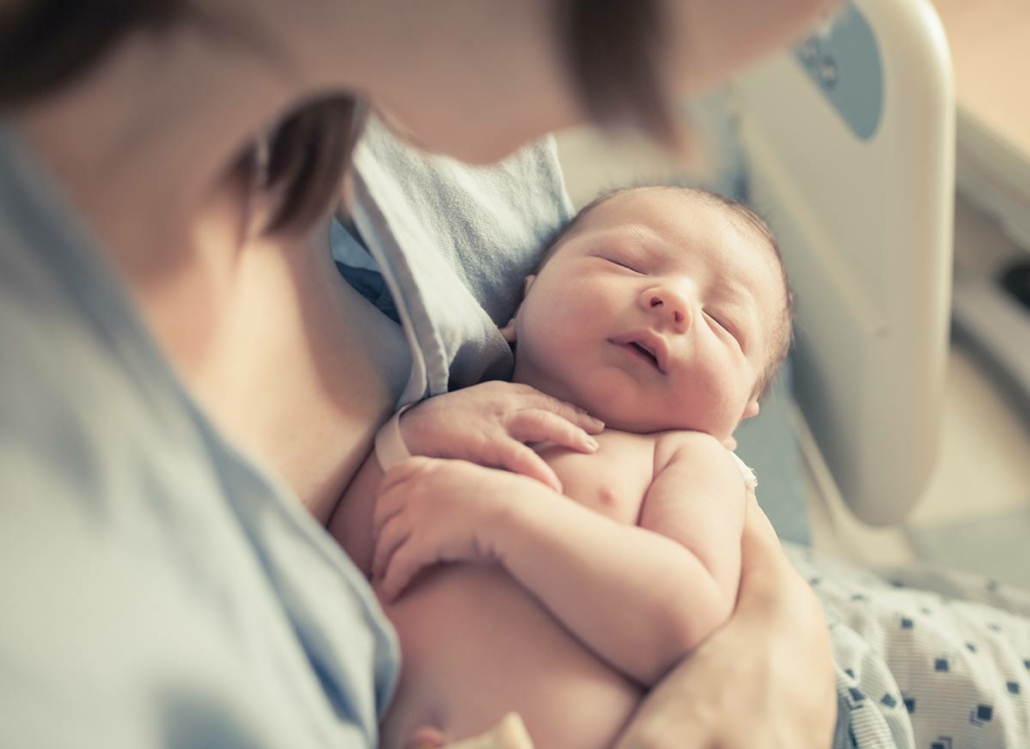The topic of setting boundaries and guidelines for newborn visits is a sensitive but important aspect of parenting. Parents often face pressure from a variety of sources, including family members and societal expectations, when it comes to managing interactions with their newborns. In a recent case highlighted by KIIS FM in Sydney, Australia, a mother and her partner decided to set strict visitation rules for their newborn child, sparking both support and criticism from the online audience.
The couple’s decision to withhold essential details about their newborn, such as name, date of birth, and time of birth, reflects a desire for privacy and control over the dissemination of personal information. By exclusively informing those who have actively interacted with them during pregnancy, they are asserting their autonomy in determining who has access to these details. In addition, the decision to limit visits to the first two weeks, including family members, highlights the couple’s priority for the health and well-being of their newborn, especially in relation to vaccination requirements to minimize the risk of infection.
The guidelines set by new parents, although met with mixed reactions, emphasize the importance of respecting parental boundaries and decisions regarding their children. While some individuals see the rules as reasonable and necessary measures, others perceive them as too strict or unnecessary. This diversity of opinion underscores the complexity of balancing personal preferences with societal expectations and the differing perspectives of individuals within a community.
Expert opinions, such as those from institutions such as Johns Hopkins, offer valuable insights into the health aspects of visiting newborns. Recommendations to limit visitors during the vulnerable early months of a newborn’s life are in line with the cautious approach advocated by health professionals to guard against potential health risks. Additionally, the emphasis on following good hygiene practices and avoiding close contact with newborns’ faces reflects a proactive approach to minimizing the transmission of harmful bacteria and infections.
Handling situations involving parental boundaries and newborn visits requires sensitivity, communication, and mutual respect from all parties involved. While parents have the right to set guidelines that align with their values and priorities, it is essential to approach discussions with empathy and understanding. Collaborative efforts to problem-solve, explore alternative ways to bond, and prioritize newborn health and well-being can help foster positive relationships and a supportive environment for families as they navigate the joys and challenges of parenthood.
In general, parents don’t appreciate uninvited criticism or parenting advice. In addition, parents have the right to set limits on who can interact with their children, especially when it comes to visiting the newborn. However, one mother had a list of demands that some found excessive.
When KIIS FM in Sydney, Australia released a set of eight guidelines for visiting a new baby — specifically hers — people online reacted in different ways. KIIS FM radio host Jackie O’Henderson read the regulations “literally” and added that the pair also intend to follow several other guidelines. Meanwhile, co-host Kyle Sandilands “sighed” at the list.
Expecting couple
To begin with, the couple decided not to make any major announcements, contrary to the custom of parents announcing births.
They decided to hide the newborn’s name, date of birth, time, and all other details from the internet. Henderson said, “If we want you to know, you will know,” on behalf of the new parents. In the same vein, the couple is asking that anyone who visits and abides by their terms and conditions not share any information about the new baby online.
O’Hendersonoes on to say that the couple decided to exclusively tell people who had “opted in” since the pregnancy announcement about the impending arrival. “Otherwise, we took your silence as a lack of interest in our friendship and it is reciprocated as well.” The mother to be revealed in her statement.
For the next two weeks there will be visitors; “No exceptions, no texts, no calls.” Kyle then asked about the grandparents.
Surprisingly, parents applied this regulation to family members and friends. Newborn visitation guidelines are also set by parents, but this has become a contentious issue in recent years. To reduce the risk of infection, they expect that everyone who comes into contact with the newborn will be fully vaccinated. “Don’t get mad when we ask for documentation. We won’t put her health at risk.”
Likewise, the couple demands that one “touch” her – i.e. kiss the child’s cheek. Parents have the right to choose who will hold the new baby, although the latter part may leave some doubt. The official eight rules set by new parents are listed below.
Guidelines for newborn visits
1. The name and birth of the child will not be published
2. Only people who have visited since the announcement of their pregnancy will notify the couple of their impending arrival.
3. The event had no images shared on social media
4. There will be no visitors in the hospital or at home for the first two weeks. No calls, texts o, or exceptions
5. Everyone who comes into contact with the newborn must be immunized.
6. Do not touch or kiss the baby’s face.
7. Avoid wearing too strong perfume or cologne when you first meet your baby.
8. When visiting the baby, don’t count on hosting. Bring your own food and drink.
Taking action
Some individuals said that the demands were completely reasonable and legitimate. “Their baby, their rules. One person wrote a comment. One person clarified: “The people these boundaries are for are the people who are triggered by it.”
To some, on the contrary, the list seemed rather excessive and they were not even amused by it. One person said: “I hope he knows what he’s doing.” Another added: “The same person will later complain that they have no ‘village’ and no one to help them.”
Newborn visit according to expert opinion
It never hurts to turn to experts, although parents have the right to define their own rules and boundaries for their children. This helps parents arrive at the most comprehensive decision.
Johns Hopkins does not recommend that newborns have too many visitors, especially during the first few months of life.
This is due to their extremely weak immune systems, which makes them susceptible to serious health problems such as sepsis and meningitis when exposed to microorganisms.
In addition, the “blood barrier” that protects the brain from infection is still developing.
As a result, it is recommended to delay visiting extended family for two to three months after the birth. Regardless of whether it is possible to delay loved ones for this longer period, it is always recommended to maintain proper hygiene. To reduce the transfer of bacteria, it is always recommended to remove jewelry and wash hands properly before visiting a newborn.
At least one of the rules listed by the viral mom seems to be supported by experts. People should avoid kissing or getting too close to a newborn’s face when they visit, as the mouth is a breeding ground for bacteria that are quickly transmitted through saliva. Similarly, it may be a good idea to wear a mask when visiting a newborn.

However, the pandemic suggests this may be a potentially contentious issue.
Handling tense situations
Be that as it may, well-intentioned people will almost certainly support the freedom of parents to do what they think is best for their children. However, saying “no” to loved ones can be intimidating. If you have a co-parent or partner, discussing these difficult conversations with them can help you get through them. This way, you can present a united front to family and friends and make sure you’re both clear about your expectations beforehand. An excellent method to set limits without upsetting anyone is to make sure your loved ones are aware of the health risks associated with visiting a newborn.
Alternatives such as photos or FaceTime can also help reduce the worry of missing out on important opportunities.
In parenting, setting boundaries and guidelines for interacting with newborns is a personal decision that varies from family to family. The recent case of a mother who set strict visitation rules for her newborn has sparked a range of reactions online, from support for parental autonomy to skepticism about the scope of the guidelines. While some individuals viewed the rules as reasonable and justified, others questioned their necessity and practicality, suggesting possible consequences for family relationships.
It is important to remember that parents have the right to define their own boundaries when it comes to the well-being and safety of their children. However, crossing these boundaries can sometimes lead to tension or disagreements between family members and friends. In such cases, open communication and mutual understanding play a key role in promoting respect for each other’s decisions and interests.

Expert advice from institutions such as Johns Hopkins underscores the importance of limiting visitors, especially during the vulnerable first months of a newborn’s life, to minimize the risk of infections. While the specific guidelines set by the viral mother may be up for debate, they are consistent with certain recommendations aimed at protecting the health of the newborn.
Finding a balance between protecting the newborn’s health and maintaining harmonious relationships with loved ones requires thoughtful consideration and effective communication. Parents can handle these situations with grace and empathy, whether by setting clear expectations, educating others about the rationale behind certain rules, or exploring alternative ways of connecting. This way, they can create a supportive environment for their growing family while addressing concerns about visiting and interacting with their newborn.
